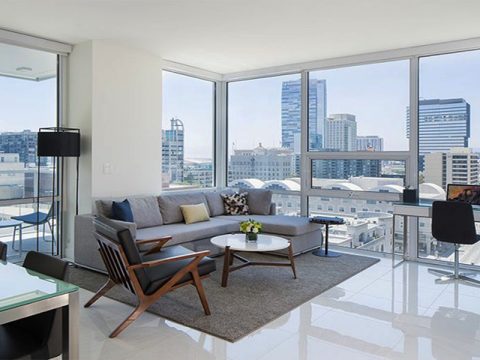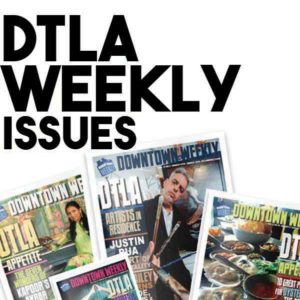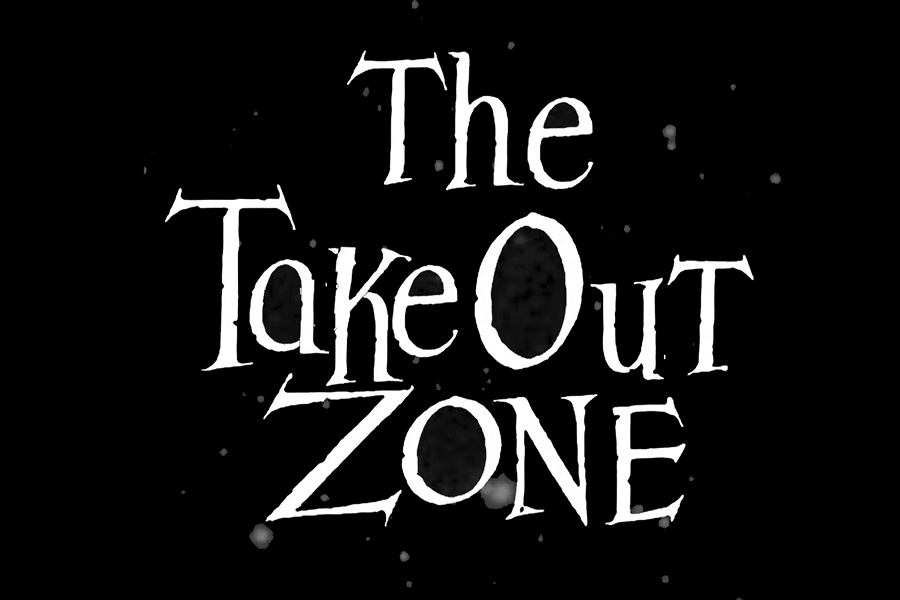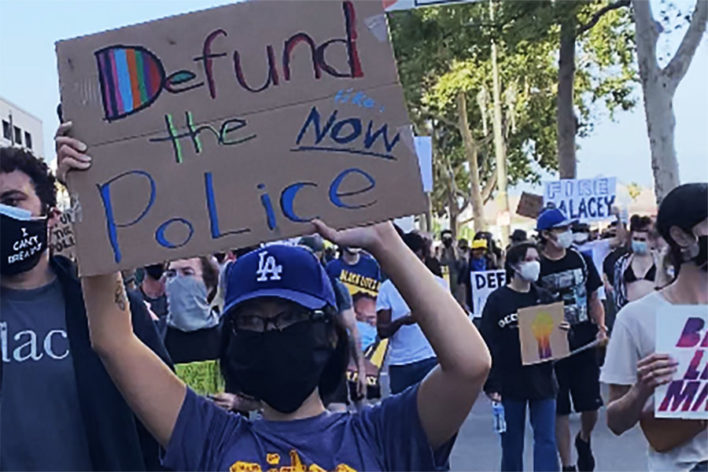
After weeks of civil unrest, the LA City Council has taken up Mayor Eric Garcetti’s most recent proposal to redirect $250 million in funds which includes cuts up to $150 million from the LAPD, to be used to address health and education issues in predominately black communities.
However, Mayor Garcetti’s accepted proposal rejects the “DEFUND THE POLICE” agenda of thousands of protesters in Los Angeles and was not met with open arms.
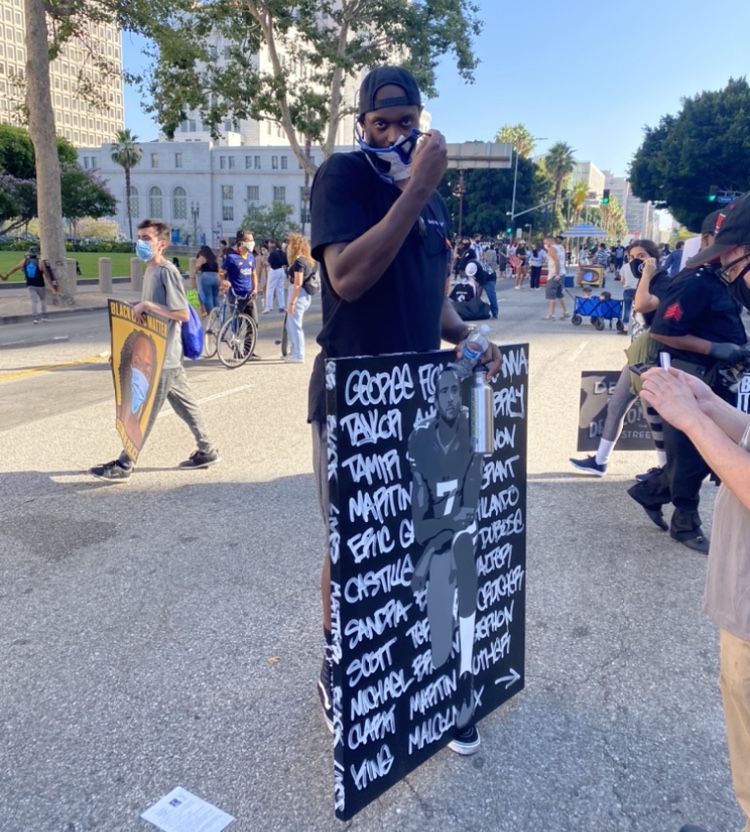
“Is it enough? It is what we want? No, it’s a response.” Black Lives Matter LA organizer, Greg Akili told Downtown Weekly LA,
“It’s not meeting the demands and what we are looking to do is get the demands met. And the demand that we have is to Defund the Police.”
The mayor’s initial 2021 fiscal year plan proposal, which in response to COVID-19, included over $230 million in spending reductions to areas such as zoos, cultural affairs, and tourism was met with strict opposition by grassroots organizations upon its inception. Because despite the cuts, Garcetti’s original draft included a 7% spending increase for the LAPD that guaranteed a lucrative raise and bonus package for rank-and-file officers. Needless to say that Garcetti’s actions never sat well with organizers.
Long before the George Floyd tragedy, activist groups such as Black Lives Matter LA publicly denounced Garcetti’s 2021 budget request as secretive, undemocratic, and draconian due to its lack of transparency. And in response, took matters in their own hands and teamed up with other local grassroots organizations to compose their own fiscal budget for the city of Los Angeles entitled “The People’s Budget”. The opposing proposal, which was drafted after surveying more than 1,470 Angelenos and included the engagement of over 3,300 in the budgeting process, seeks to invest largely in universal needs for communities and divest from policing.
According to Bloomberg Businessweek, police budgets have made up on average close to 3.7% of state and local budgets since the 1970s. Police investments have also tripled over the last four decades from $42.3 billion in 1977 to $114.5 billion in 2017. Los Angeles is no stranger to this practice as the city has been known historically for not just it’s robust LAPD police budgets but also its violent crime.
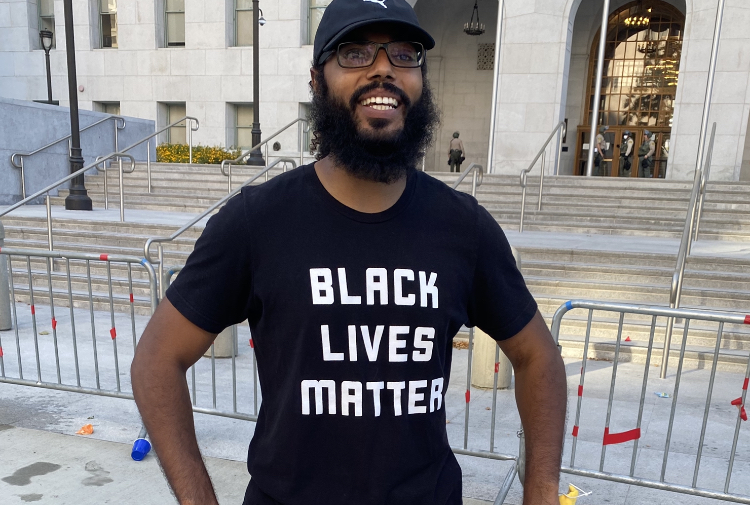
But crime rates in Los Angeles have dropped consistently since hitting its peak in the 1980s. Los Angeles is no longer the crack infested, gang-ridden city of the ‘80s and 90’s. However, this has come at a high cost as policing practices in inner-city communities have also been a controversial topic.
In 2013, the LAPD reached its goal of 10,000 officers and remains currently staffed at 14,000. However, despite a somewhat consistent lowering of the crime rate over the last four decades, the expansion of the LAPD has always been an issue of contention.
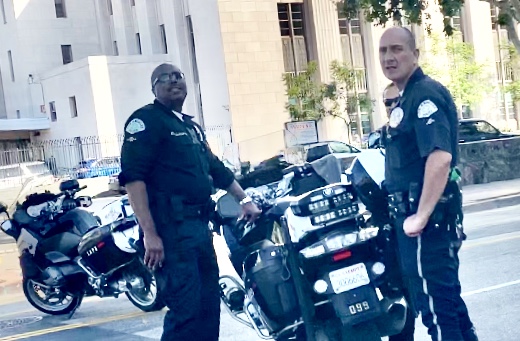
Was the LAPD expansion the reason why Los Angeles was safer? Should police have priority over emergency response times, street maintenance, and other basic services?
Activists pushing for the “Defund the Police” narrative want to see less money given to police and more given to resources that can benefit the community and create jobs. These organizers believe that well-resourced communities could potentially become free of drugs, prostitution, and gun violence without the police altogether. To them, this Utopian business model sounds possible, but in theory, the $1 billion question remains: Is it profitable?
Although crime rates are determined by many different factors, the police are one of the main sources of crime prevention. Downtown have seen a sharp drop in violent crime overall due to gang eradication efforts, redevelopment and gentrification. Thus, ridding troubled communities of police isn’t a popular opinion in the LA political circle because a police presence spurs economic development, growth, and brings jobs.
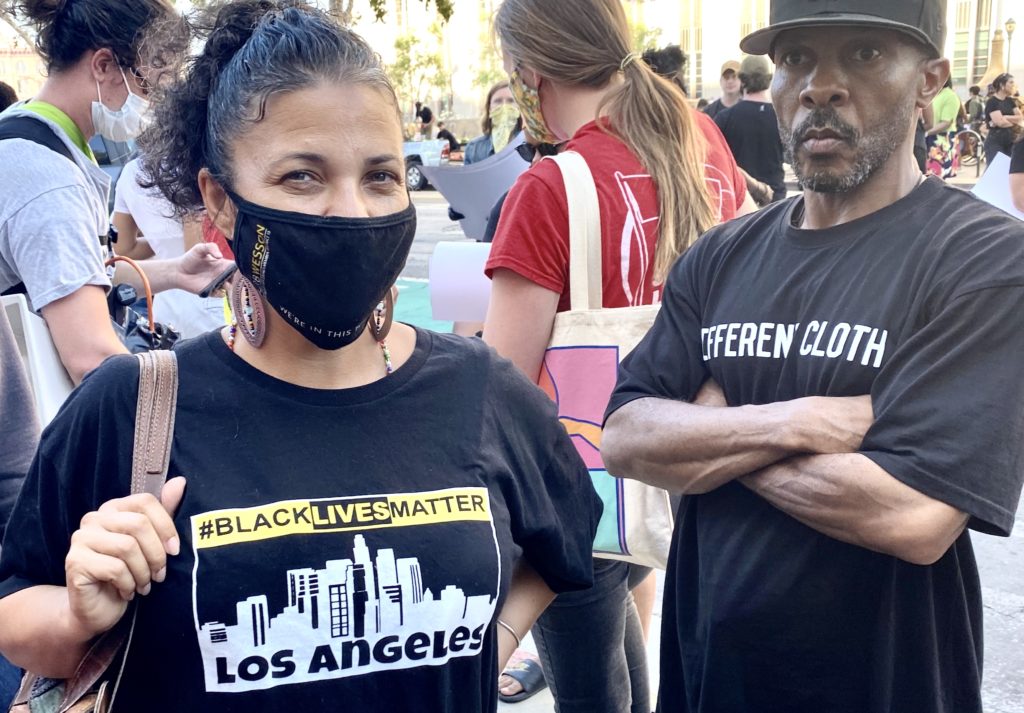
Advocates argue that we are safe enough and that a surplus of police is not healthy. However, they forget that with growth comes more people, opportunities, and unfortunately more criminals.
It’s hard to re-imagine a police-less Downtown Los Angeles without anticipating at least a few more illegal dispensaries, robberies, aggravated assaults, shootings, and homicides than that usually occur.
Impoverished areas in downtown Los Angeles such as Skid Row have always been a priority for the LAPD Central Division as its conditions are a key for violent crime.
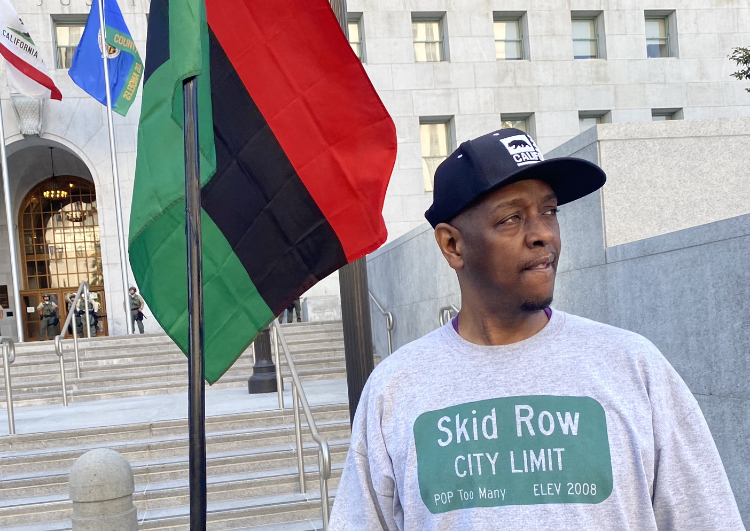
Skid Row community activist, General Jeff, who has been an active resident of Skid Row for over 14 years, is no rookie to the Downtown Los Angeles streets and feels that a police-less day in downtown Los Angeles could be the “Wild Wild West” given the potential threat of looters and “opportunists” that would capitalize on vulnerable businesses within the area.
“Imagine if there were no law enforcement to curtail the looting. Practically every store would be looted on a nightly basis,” General Jeff told Downtown Weekly LA.
Although General Jeff still believes the LAPD is necessary, he feels the police function best as a buffer between violence in the community than a tool for crime prevention because they act more as a reactionary force than actual crime-stoppers.
“A lot of the LAPD funds being re-directed can be used to create more vibrant, healthier communities. Not necessarily [with money] going straight to people’s pockets, but keeping them busy enough or on a path to have healthier communities.” General Jeff continued, “We’re trying to work with rec and parks to get some amenities put in there so we can have some positive programming. In our community survey, people are saying they want yoga, Tai-Chi, games, and amenities for children. There’s a lot of that LAPD money that could go to something positive in Skid Row instead of going into the pockets of these officers.
A police-less DTLA wouldn’t be ideal for tourists, residents, workers nor the economy because downtown Los Angeles is a financial and economic stronghold for not just the city but the state and country as well.
However, a re-imagined and police-less Los Angeles built on well-resourced communities and social institutions remains a priority for staunch advocates.
Join the conversation on Facebook via DTLA UNCENSORED.
The good thing is that not just Angelenos but also the world is well aware of the issue of police brutality and injustice. And as a consequence, cuts to the police have been made by city officials and hopefully, these communities will receive the resources they need to progress.
Nevertheless, Los Angeles is a metropolis full of many cultural, language, and psychological barriers, so there’s bound to be at least one person who has a need for the LAPD at some point throughout the day. If that’s not true, then we wouldn’t be living in Los Angeles.


